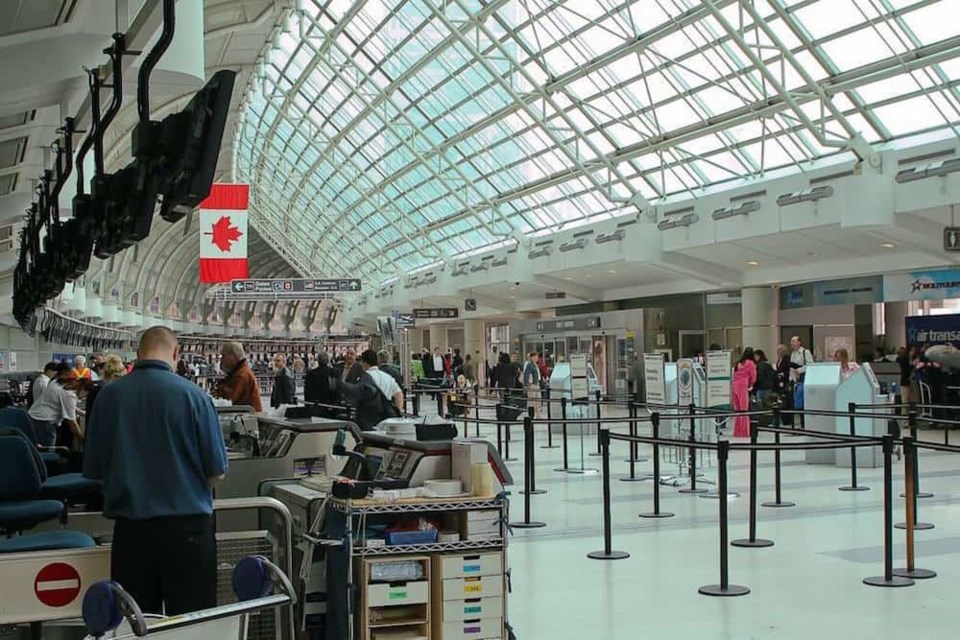Earlier this year, the Canadian government announced that all travellers entering the county would have to provide proof of a negative result for a coronavirus (COVID-19) molecular test--but there are several exceptions to the rule.
Not only are some people who provide essential services exempt from the rule, but also people who must leave and return to Canada regularly to receive essential medical services in another country; one person may also accompany them.
Employees of the Government of Canada or a foreign government, including border services officers, immigration enforcement officers, law enforcement and correctional officers, who are escorting individuals travelling to Canada or from Canada pursuant to a legal process such as deportation, extradition or international transfer of offenders may also be exempt.
People who are transiting passengers who are only flying through Canada to reach another country do not need to take a pre-entry COVID-19 test, either.
Children who are four years of age or younger also do not have to provide the test result.
People who tested positive weeks before travel may be exempt, too
Travellers who have molecular test proof to show they had a positive COVID-19 test taken between 14-90 days before travel are also exempt from the rule.
"A COVID-19 case which is classified as resolved may still have ongoing clinical indications and symptoms, but should no longer require isolation measures or public health follow-up," André Gagnon, a media relations advisor for the Public Health Agency of Canada, tells Vancouver Is Awesome.
Persons of 'national interest'
The Orders also exempt a foreign national whose presence in Canada, in the opinion of the Minister of Foreign Affairs, the Minister of Immigration, Refugees and Citizenship or the Minister of Public Safety and Emergency Preparedness, is in the national interest.
This exemption may only be applied by any of the aforementioned ministers. From there, the Immigration, Refugees and Citizenship Canada (IRCC) Case Management Branch (CMB) manages these situations.
"National interest considerations used to overcome the travel restrictions pertain to why the person should exceptionally and immediately be allowed to board a flight bound for Canada or enter Canada. For example, business visitors travelling to contribute to Canada’s critical infrastructure may be considered to be in the national interest," explains the government.
However, the national interest exemption is intended to be "used in exceptional circumstances only."
In other words, the national interest exemption should be considered only after all exemptions are considered. "It is not meant to be a workaround for cases when a more appropriate exemption is not granted by the authority authorized to make the exemption."
Everything Canadians need to know about coronavirus (COVID-19) testing for travel
The BC Centre for Disease Control has released infographics that explain what travellers need to know before coming to Canada.
Effective Feb. 21, travellers coming into Canada via land will need to provide a negative result for a COVID-19 molecular test taken in the United States on arrival. The test needs to be taken within a 72-hour timeframe of arrival to Canada.
Travellers entering Canada by land will also have to use ArriveCAN to enter their information regarding plans to quarantine.




